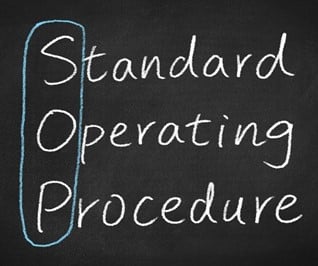5 Reasons Why You Should Have Technical Writers on Your Team
October 14, 2022
The first thing most people think of when hearing the term “technical writing” is engineering or science. However, you can apply technical writing to any business, regardless of its level of complexity.
For example, many retail establishments use technical writers to craft their operations manuals. In addition, small, medium, and large companies utilize white papers, case studies, and brochures to sell their products or services.
Here you will discover what technical writing is and how it can help your organization, no matter its size. You will also learn how to tell the difference between technical writing and copywriting. Then, you can decide if including technical writers on your team is a good fit for your company.
What is technical writing?

Simply put, technical writing is written communication designed to educate the reader.
This can include manuals, guides, white papers, and case studies.
Almost any kind of document meant to inform an employee, prospect, or customer can be created by a technical writer.
The Society for Technical Communication provides three characteristics of technical writing:
- Communication of technical topics, such as engineering, medical, or computer sciences
- Communication via technology, such as help files, websites, or social media
- Communication about how to do something, even if it is not technically oriented
Your organization’s needs will fall somewhere within this framework.
How do technical writers differ from other writers?
Most successful businesses utilize copywriters, whether they are part of a regular staff or hired as freelancers. However, technical writers are much more specialized in the scope of services they offer.
Keep in mind that while the two can overlap at times, each has distinct differences.
Copywriters
Traditionally, copywriters create “ad copy” for a specific brand to advertise it. Types of content include:
- Sales letters
- Brochures
- Magazine ads
- Billboards
- TV and radio ads
However, the internet has created an audience for a wide range of digital content as well. Here are just a few examples:
- Websites
- Landing pages
- Blog posts
- Email campaigns
- Social media content
Typically, the marketing director will oversee a team of copywriters to fulfill the content requirements of the company. The objectives of digital content include:
- Driving traffic to the company’s website
- Brand awareness
- Lead generation
- Creating goodwill with customers and prospects
The tone of each piece is friendly and informal. It also needs to be persuasive without being overly aggressive. The skilled copywriter accomplishes this by putting the reader at ease while leading them through the decision-making process.
In addition to being expert marketers, copywriters must keep the reader’s attention, which is becoming increasingly more difficult in today’s hyper-competitive world. More available content online means copywriters have less time to make the case for a brand’s exclusive offering.
Search engine optimization (SEO) plays a vital role in how well a company’s content ranks on Google. To achieve this goal, the SEO copywriter must be highly skilled in keyword selection, meta tag usage, and formatting.
Technical Writers
Technical writers communicate facts about how to do something and mostly write in the third person. They do not express an opinion, which contrasts with the marketing principles followed by copywriters.
In addition, technical writers utilize charts, diagrams, and tables more frequently than other writers. For this reason, they must be proficient with specialized documentation software, such as:
- Madcap Flare
- Visio
- Excel
- Snagit
- Adobe Captivate
- Camtasia Studio
These tools require several hours of specialized training to master. A proficient technical writer can use several together to create documents with many types of illustrations or diagrams.
Although technical writers do not have to be subject matter experts in everything, they must know how to convey complex ideas in simple terms.
For example, suppose the CEO of an accounting firm wants to create an operations manual for their employees. The technical writer does not have to be an accountant but must collaborate effectively with expert accountants to create the document.
Technical writers utilize clear, concise language. They dispense with any ambiguity and get to the point.
What kinds of content do technical writers create?
The best technical writers create a wide range of content based on the organization’s needs. Below are a few examples of the most common types.
Standard Operating Procedures (SOPs)
SOPs provide businesses with valuable tools for accurately communicating company policies and procedures.
These vital documents foster teamwork, improve communication, and maximize productivity within the organization.
To provide clear, concise directions for all employees, the SOP writer utilizes several techniques, including:

Simple Steps
This format provides simple, step-by-step instructions for completing routine, repetitive tasks. Simple steps do not include much detail, so they typically only work when experienced employees are assigned these tasks.
Hierarchal Steps
The hierarchal format provides both simple steps and sub-steps. For example, experienced employees may opt to utilize more generalized simple steps, whereas new hires may wish to use more detailed instructions for greater clarification.
Graphic Formats
It is sometimes best to implement diagrams, charts, and graphs to illustrate complex procedures. These tools work especially well for longer processes that contain several sub-steps.
Flowcharts
The most common example of a flowchart is the troubleshooting chart. It begins with the problem, then works its way down to the bottom of the page.
The flowchart guides the worker through a series of steps to reach a logical conclusion for solving the discrepancy.
Revisions and Updates
Whatever the format used, the technical writer must collaborate with leaders and managers to create the best possible SOPs for the company. They also must be willing to revise and update as necessary to ensure the information presented is accurate, concise, and balanced with the correct amount of detail.
Whitepapers
Traditionally, government officials utilize whitepapers to inform the public or other agencies of a problem affecting society. The writer then presents practical solutions while reiterating the importance of implementing them.
However, many businesses today are finding ways to utilize whitepapers for marketing purposes.
For example, customer pain points are identified within a specific market. The technical writer presents the company’s product or service as a solution. By the end, the reader hopefully has enough information concerning both the problem and the solution to make an informed decision.
Structure
Whitepapers typically have longer introductions than blog posts or marketing pieces. They are much wider in scope than most articles and require the writer to make a case about the importance of the information presented.
Next, the writer offers compelling evidence for both the problem and the solution. They back the information up with charts, graphs, diagrams, and other visual elements.
References
Technical writers are experts at citing their sources. They typically list them at the end of the whitepaper. However, they are flexible enough to use any method your business model requires.
Case Studies
Case studies illustrate how your company has achieved success in the past for your customers. They not only create brand awareness but also establish trust, drive traffic to your site, and convert leads.
However, case studies are not easy to create. The technical writer must bring together scientific data, social proof, and graphic elements to convince the prospect that your company is the best choice.
The writer assigned to a case study must be proficient in both technical writing and copywriting. They must skillfully convey your customer’s pain point, how your solutions solved the problem, and what your management team learned in the process.
A skilled case study writer can translate complex technical concepts into understandable language. They are expert interviewers and excellent storytellers. Above all, the case study writer must always keep your company’s information confidential.
Government and Corporate Proposals
Government entities often send requests for proposals (RFPs) to qualified contractors. These vital documents serve three key functions:
- Announce a project to be completed
- Describe the project
- Solicit bids
Responding to these requests can be a daunting task for any business. However, a technical writing team can help streamline the process.
For example, these experts can help you:
- Launch the project by gathering the necessary data
- Write the rough draft
- Collaborate with key team members to review and edit
- Write the second draft and utilize graphic elements
- Ensure the document is within full compliance and is sent on time
Elite technical writers are experts in both government and corporate RFPs. They also are comfortable working within several key industries, including:
- Healthcare
- Oil and gas
- Construction
- Business services
- Retail
- IT
- Hospitality
- Media and communications
5 Benefits of Hiring a Technical Writer
By now, it should be clear that having contracted technical writers on your team offers many benefits. Below are some examples of how technical writers can help your business grow.
1. Cost Reduction
Utilizing the expertise of technical writers allows for improved customer loyalty by providing accurate product descriptions and instructions. It also means fewer calls to your tech support department.

SOPs increase employee retention by providing step-by-step instructions to your team at all levels.
Managers no longer waste time constantly reviewing routine tasks with their crews. Instead, they are free to find ways to improve efficiency for the next day.
All these outcomes equate to increased cost savings long term.
2. Better Audience Engagement
Technical writers turn complex subjects into engaging content for your readers. This means potential customers understand precisely what your company offers.
3. Credibility
Well-written, professional documents can help raise your business above your competition. On the other hand, written material containing grammatical errors and incorrect information can lower your organization’s credibility with your customers and shareholders.
4. Impartiality
In-house copywriters are often enthusiastic about the company’s products and services and tend to overstate their benefits. However, when writing SOP manuals, white papers, and RFP responses, it is vital to maintain a certain amount of objectivity.
5. Clear Instructional Design
Technical writers possess the tools to create professional graphs, tables, and charts that are crucial to the success of any technical document. In contrast, copywriters focus on using photos, videos, and simple color schemes to elicit an emotional response from the buyer.
Attributes of a Skilled Technical Writer
Besides having the necessary education and skills to perform the job, technical writers must have certain qualities desired by potential employers. According to the University of Illinois Department of Economics, these are the qualities technical writers must possess to be successful in their careers:
Excellent Communications Skills
It is vital for a technical writer working on your project to communicate well with your team. They must be able to spell out what is needed for the project quickly and precisely.
Exceptional Writing Ability
Your organization’s credibility is vital to its success. Therefore, there is no room for poor writing in your technical documents or marketing materials.
Detail Oriented
Technical writers must pay particular attention to details. Otherwise, the accuracy and clarity of the document could be compromised.
Creative
While it is true that technical documents require a higher level of accuracy, they must still be created by a writer with a good imagination. As with any technical profession, the ability to visualize a completed project is crucial to its success.
Team Player
The best technical writers put the team and project ahead of themselves. They understand it takes a collaborative effort to offer your organization the most favorable outcomes.
Key Takeaways
Technical writing is written communication that informs or provides detailed instructions for the reader. Any organization or business can utilize it to sell a product, inform employees, or maintain credibility.
Additionally, since technical writing is more objective than marketing content, it requires a different skill set than copywriting.
If you would like to learn more about how to hire a technical writer for your organization, feel free to contact one of our experts. You can also call The Writers For Hire at (713) 465-6860.






























